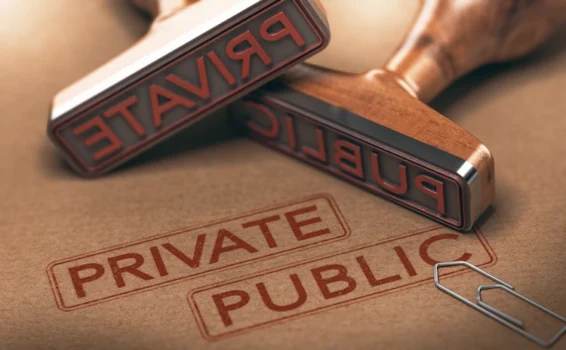
On June 30, 2025, Gov. Phil Murphy signed public notice reform legislation into law. The new law (S-4654/A-5878) requires – beginning March 1, 2026 – a public entity to publish or advertise legal notices on its official website. The new law also mandates that private entities required to publish legal notices do so on an online news publication. To avoid compliance missteps, we strongly encourage land use applicants and municipal officials to be proactive in familiarizing themselves with the new requirements.
This new law will affect both private developers and land use applicants, as well as municipal clerk’s offices.
Key Provisions of New Jersey’s New Public Notice Requirements
The modernization of New Jersey’s legal notice requirements respond to the fact that paper newspapers are quickly becoming scarce in the digital age and online publications are often subject to pay walls. The new law also aims to provide greater accessibility to the public and boost government efficiency. Below are several key provisions:
- Applicability: The law imposes obligations on any public entity (e.g. municipality) related to publication of all legal notices required by state law, including any resolution, official proclamation, notice or advertisement of any sort, kind, or character, including proposals for bids on public work and otherwise, required by law or by the order or rule of any court to be published by a public entity, corporation, an individual, or any other entity. This will include Open Public Meetings Act notices, as well as notices required as part of a land use application.
- Municipal Websites: A public entity’s official Internet website must be accessible and available to the public free of charge. The website must have a direct hyperlink to legal notices which must be conspicuously displayed on the public entity’s Internet homepage.
- Secretary of State Website: Each municipality is required to submit the hyperlink to local public notices to the Secretary of State and provide any updates.
- Legal Notice Archive: Public entities are required to maintain an Internet archive of legal notices that are no longer displayed, which are required to be kept for at least one year. A public entity is required to display a legal notice on its legal notices webpage for at least one week, or other time period as required by law, before transferring it to the archive. Local government units are not required to maintain an archive until July 1, 2026.
- Online News Publications: Public entities must provide an advertisement at least twice a month for each month in 2026 in an eligible online news publication that states that the complete text of each legal notice may be obtained or viewed by the public on the website of the public entity and provides the hyperlink to the Secretary of State’s directory. A local government unit may, in addition to the publication on its own website, publish or advertise a legal notice on an eligible online news publication.
- Private Entities: A corporation, individual, or any other non-public entity required to publish or advertise legal notices must do so in an online news publication that satisfies certain eligibility requirements set forth in the law.
Finally, S-4654/A-5878 extends the provisions of two prior laws that provided temporary relief from the requirement that all public notices be published in print newspapers. Applicants and public entities may continue to use print or electronic newspapers for legal notices.
Impact on Land Use Applicants
Land use applications and approvals often require notice publication pursuant to New Jersey’s Municipal Land Use Law (MLUL). Specifically, the MLUL mandates that notice must be sent by certified mail to all property owners within 200 feet of the subject property. Additionally, notice must be published in an official newspaper of general circulation in the municipality at least 10 days prior to the scheduled public hearing.
Pursuant to S-4654/A-5878, legal notices required under the MLUL must be published online as set forth above. Notably, the new law does not change the requirement to provide notice by certified mail to property owners within 200 feet.
Developers, land use applicants, and their attorney should review the website of the municipality in which they are making the application to ensure compliance. Any public notices should be sent to the municipal clerk’s office well in advance of the deadline to ensure adequate time to publish the notice. The developer or developer’s attorney should verify that the notice has been published properly prior to the deadline.
The developer remains responsible for mailed notice to property owners within 200’ of the project and for publication in a newspaper or online news publication. The developer is also responsible for sending the legal notice to the municipal clerk’s office with adequate time for the notice to be published on the municipal website.
Next Steps for Compliance
Applicants and municipal authorities will both need to amend their notice procedures to ensure compliance with the new public notice requirements. It is imperative to understand the process of posting notices, maintaining archives, and ensuring that notices are posted for the required time period. Getting prepared for the new requirements will likely involve updating internal procedures for notice publishing and recordkeeping, training employees, and coordinating website updates with IT staff. For example, municipalities should consider adopting a deadline by which all notices must be submitted to ensure there is adequate time to publish the notice on the website.
We also strongly encourage developers, applicants, municipalities, and any other public entity to consult with legal counsel to ensure full compliance with the new law. Scarinci Hollenbeck’s Government & Law Group is here to help facilitate the transition and answer any questions you may have.
